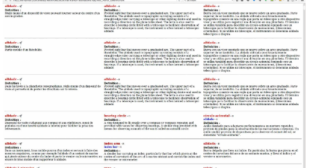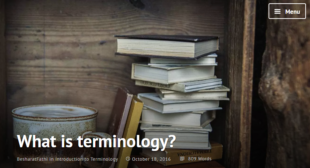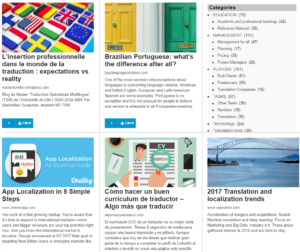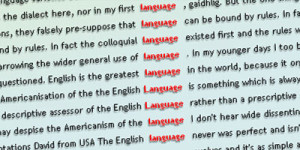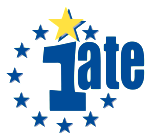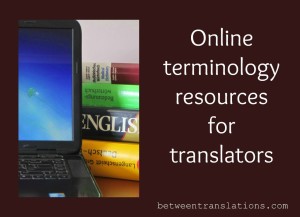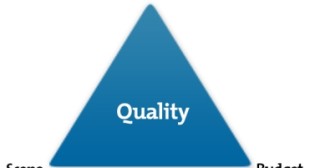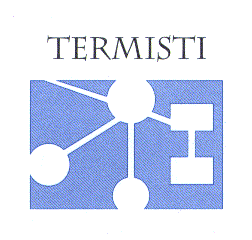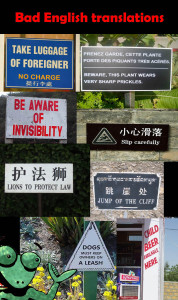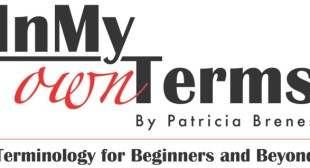Terminology
In order for their content to be exploited to its fullest, true electronic dictionaries must be built on a very strictly defined structure with highly specific data categories. https://www.researchgate.net
When you hear the word “terminologist”, how many images usually come to your mind? One image can be that of the person who spends every moment searching in dictionaries and internet to find new words, new meanings, and their etymologies. Another image can be that of an academic or translator who always spends time with […]
This blog post is about the use of electronic corpora, specifically monolingual reference corpora, for translators. It discusses the use of the Google Books Corpus as opposed to BYU corpora (British National Corpus, Corpus of Contemporary American English, News on the Web Corpus…). Home
How does Terminology fit into an Internet of Things world? This blog explores what the future holds. The Internet of Things (IoT) is the communication between devices with sensors that exchange all types of data via the Internet; in other words, it is a huge network of interconnected objects (or things): goods, machines, appliances, […]
We use standards every day, in all aspects of our lives. Some standards have been around for hundreds or even thousands of years. Think, for example, of weights and measures and how their differences and similarities affect us all. Standards provide a shared reference framework that ensures safety, reliability, interoperability, and transparency, … Home
Marc Van Campenhoudt et Rita Temmerman | Érudit | Meta v56 n2 2011, p. 223-225 | http://id.erudit.org/iderudit/1006173ar L’expression linguistique de corpus ou corpus linguistics semble relativement tardive au regard des liens profonds qui unissent texte et informatique. Elle semble émerger vers la fin des années 1970, sans que le lien avec la linguistique computationnelle soit nécessairement perçu comme […]
The following list is a result of collaboration by participants of Lancaster’s recent MOOC on Corpus Linguistics. This is a selection of the links that I considered more relevant for those who might want to start exploring this field. If you want to share other links, feel free to add a comment or send me […]
IATE (InterActive Terminology for Europe) is the terminology database for all EU institutions. IATE has been operational since the summer of 2004 with the aim of providing an internet-based service for sharing terminology between institutions. In 2007 a public version of the site was launched which enables all EU citizens to search for specific terminology […]
Every time you convert an idea or an image in your brain into a phrase, and for every expression of a concept, you instantly and consistently search for the term that will most clearly describe what you think, what you mean. This automatic process is very quick, based on the thesaurus of terminology you have […]
It was professor Mark D. Childress who referred to this term in his article “Terminologiphobia” in a Multilingual Magazine article published in June 2006. It was a fun article about how he had to deal on a daily basis… http://inmyownterms.com
From increased messaging consistency to faster go-to-market times, enterprise terminology management brings big benefits to your language translation program. Few things are as important in your written global content as the words themselves. Different terms describing a product from one market to another could leave your target audiences figuratively scratching their heads in confusion. […]
Whether it’s choosing the correct pharmaceutical terms or product descriptions, terminology management is an important part of the translation process. The translation of a word might be technically correct, but without the right terminology, it won’t meet a client’s standards. Picture credits: Jirsak / Shutterstock.com http://blog.lingo24.com
Terminology is crucial for our work as translators. We are continually searching for the right words – in our heads, in dictionaries or online resources, or in our translation memories and terminology databases. Here are some useful, free resources to help find the right terminology for your translations. Home
T-Manager is a Microsoft Excel-based terminology tool, designed in VBA, to automatically analyse, customise and manage terminology on the fly. T-Manager can also be used with terminology exported from third-party tools such as Idiom WorldServer and Systran’s Machine Translation (MT) dictionaries. About Rafael
In the era of globalization and multilingual communication, States, companies and organizations need to establish and to share a commonly understandable terminology. Two questions have to be discussed; one about normative terminology, i.e. the compulsory use of the terms suggested in a database or glossary produced for the needs of the company or organization and […]
If you translate using SDL Trados Studio, you probably have lots of handy MultiTerm termbases. (And if you don’t use termbases, have a look at this post for details of what you’re missing.) After creating all that valuable data, you may want to share it with your client – so you will probably need to […]
Building a bank of translation resources can be a wise investment If you’re interested in getting the very best out of your business translation service provider, then your next step might be to invest in creating resources for them to use. From linguistic style guides to help writers perfectly match your company tone to glossaries […]
Once upon a time some translators had one or more cardboard boxes where handwritten and alphabetically ordered terms ─ including their definitions, sources, synonyms and etymology ─ were kept on cards of different colour. Some colleagues kept them in their notebooks we also used to use as phone directories. http://www.maslias.eu
In our series ‘Welocalize and Global Manufacturing’, Sarah Evans discusses the Importance of Effective Terminology Management with tips for localization. Home
A common topic discussed in terminology training courses deals with project constraints known as the “Triple Constraint”: scope, time (schedule), and cost (budget/resources). They are an important part of project management processes because they limit the smooth running… Picture source: http://www.mindtools.com/pages/article/newPPM_54.htm http://inmyownterms.com
Founded in 1990 by professors Daniel Blampain and Marc Van Campenhoudt, the TERMISTI research centre is attached to the Higher Institute for Translators and Interpreters (ISTI) in Brussels. Its work focuses on two areas: modelling multilingual terminology and… http://inmyownterms.com
An analysis of the importance of the correct use of translation and terminology in a global market Externalization. Global market. International business. Three terms through which currently define the commercial activity around the world. According to these concepts, another import term, “multilingualism”, should be seriously considered when a company (a brand) decides to step outside […]
I am happy to report on the results of my recent survey on terminology awareness which included participants from groups of translators in Facebook, Linkedin and Twitter. Although it was a very simple, seven-question survey, I think you… Read More http://inmyownterms.com
Every step in term processing during the preparation of glossaries or updating of termbases is important, but probably the one that will save you the most time is term validation. How and when it’s done is key to… Read More http://inmyownterms.com
(e-book extract) The use of a professional terminologist for creating and even translating a glossary can prove to be extremely valuable. Some clients have an internal terminology service, however it is quite rare for a translation company to employ full time terminologists. The tasks involved in this profession are generally outsourced to other linguists. (…) […]
